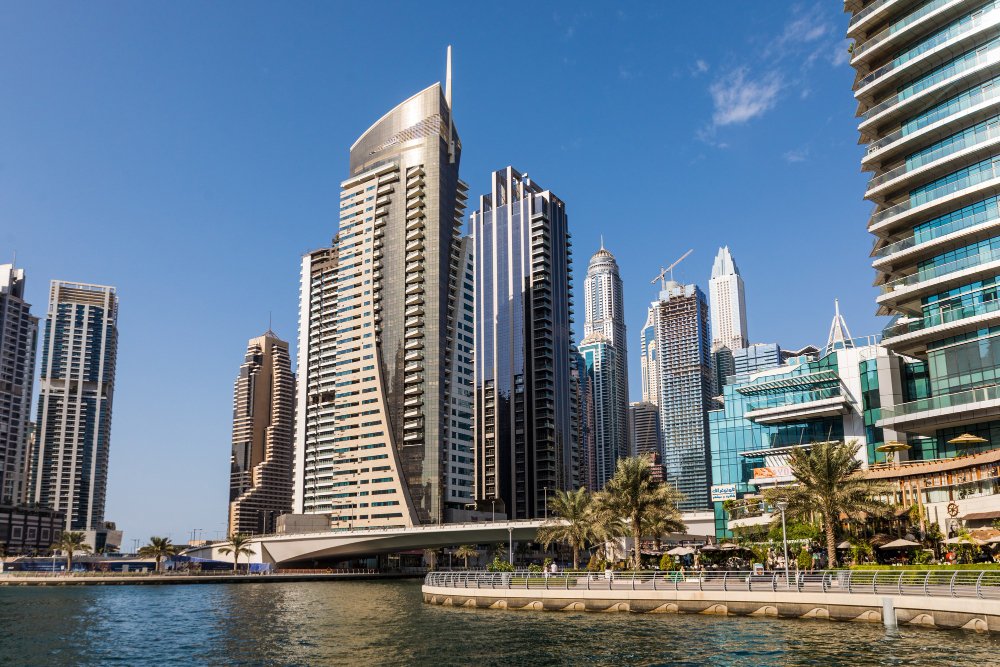Primary vs. Secondary Market: A Clear Guide to Investing in Dubai Real Estate


Dubai continues to be one of the most attractive real estate investment destinations globally, thanks to its tax-free income, strong infrastructure, political stability, and consistently growing demand for property. Whether you are a first-time buyer or a seasoned investor, understanding the difference between the primary and secondary markets in Dubai is crucial for making profitable investment decisions.
This comprehensive guide explores everything you need to know about primary vs. secondary real estate markets in Dubai, highlighting the benefits, risks, procedures, and investment strategies associated with each.
The primary market refers to real estate that is sold directly by developers, usually off-plan or newly completed properties. In this market, the buyer is the first-ever owner of the property. Leading developers in Dubai such as Emaar, Nakheel, and Damac dominate this space.
Off-plan or Under-construction Units
Developer Financing Options
Payment Plans with Post-Handover Options
Lower Upfront Costs
Modern Amenities and Architecture
Zero Commission (in many cases)
Capital Appreciation: Properties bought at launch prices typically see appreciation upon completion.
Flexible Payment Plans: Investors can leverage post-handover plans and stretch their finances.
Customization: Off-plan buyers can often choose layouts and finishes.
New Developments: Access to the latest projects in high-demand areas.
Construction Delays: Delivery timelines can extend beyond expectations.
Market Volatility: Future market conditions may affect resale potential.
No Immediate Rental Income: You must wait until handover for income generation.
The secondary market deals with pre-owned or ready properties sold by existing owners, not developers. These are fully constructed units that are available for immediate occupancy or rental.
Immediate Transfer and Handover
Market-based Pricing
Often Includes Furnished Units
No Construction Risk
Mortgage-friendly Transactions
Immediate Rental Income: Start earning from day one.
Transparency: You can physically inspect the unit before purchase.
Quick Transactions: Shorter closing times compared to off-plan purchases.
Established Communities: Often located in well-developed, fully operational neighborhoods.
Higher Initial Costs: Upfront payment or mortgage approval is required.
Additional Fees: Agency commission, service charges, and transfer fees apply.
Wear and Tear: Pre-owned units might require renovation.
| Feature | Primary Market | Secondary Market |
|---|---|---|
| Ownership | First-time buyers from developers | Resale properties from existing owners |
| Property Status | Off-plan or newly built | Ready-to-move or rented |
| Pricing | Fixed by developer | Market-driven pricing |
| Commission | Usually zero or minimal | 2% agency commission (on average) |
| Payment Plans | Flexible, often post-handover | Mortgage or lump-sum payment |
| Rental Income | Not applicable until handover | Available immediately |
| Risk Factor | Construction delay risk | Minimal construction risk |
Booking the Unit: Pay a booking fee (5%-10%).
Sales and Purchase Agreement (SPA): Signed with the developer.
Payment Plan: Installments during construction and final payment at handover.
Registration: At Dubai Land Department (DLD) via Oqood system.
MOU Agreement: Signed between buyer and seller.
NOC from Developer: Needed for title transfer.
Title Transfer: Completed at the DLD.
Mortgage Option: Available through local and international banks.
Purchase off-plan units at launch price and hold until completion, then either sell at appreciated value or rent for income.
Invest early and sell the unit before handover, leveraging market demand.
Focus on projects by reputed developers in prime locations like Downtown Dubai, Dubai Marina, or Business Bay.
Purchase a ready unit in a high-demand area like Jumeirah Village Circle (JVC) or International City, and rent it out immediately.
Buy slightly older properties, renovate or furnish, and sell at a premium.
Use the property for short-term rentals via platforms like Airbnb, especially in tourist-heavy locations like Palm Jumeirah or Dubai Marina.
You are a long-term investor.
You want modern infrastructure and amenities.
You prefer staged payments over lump sum.
You’re willing to wait for construction.
You want immediate rental returns.
You are a first-time homebuyer needing immediate occupancy.
You prefer established communities with developed infrastructure.
You have access to upfront funds or mortgage pre-approval.
Dubai Creek Harbour
Emaar South
Sobha Hartland
Madinat Jumeirah Living
Dubai Hills Estate
Jumeirah Lake Towers (JLT)
Dubai Marina
Downtown Dubai
International City
JVC
Choosing between primary vs. secondary market investments in Dubai depends entirely on your financial goals, risk tolerance, and investment timeline. The primary market is suited for capital appreciation and flexible payment plans, while the secondary market is perfect for immediate returns and established communities.
With a solid understanding of the differences, benefits, and risks, investors can strategically position themselves in Dubai’s real estate sector and take full advantage of this dynamic and lucrative market.